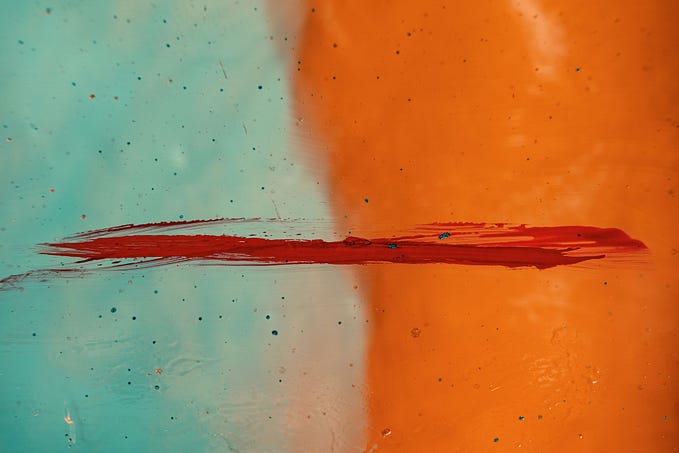Over a century ago, Nietzsche predicted the decline of religion would lead society down the path of nihilism, unless we were strong enough to create meaning for ourselves.
But life clearly has no purpose. A purpose is a goal, and a goal can be either categorical, as in “the purpose of existence is to invent grilled cheese”, a good goal, but I think hardly anyone would consider it the meaning of life. Or, it can be quantitative, so that we achieve some value, say “maximize human happiness”, and we have some way to measure happiness, which we aim to maximize by whatever means.
The latter seems slightly more plausible, after all it seems like happiness is a lofty enough ideal to aspire to. But ask yourself, why strive for happiness? Why not the pursuit of Truth? Can we achieve both? If you’ve lived long enough, you’ve realized some values are indeed at odds with each other, and ignorance is sometimes bliss. Is there an equation for the proportion of Truth to Happiness we ought to achieve? What other variables are in the mix? Keep asking these questions and it won’t take a whole afternoon to realize that there isn’t one value, or even a set of values that describes the purpose of life.
And yet, Nietzsche, and many others have spent their whole lives trying to show otherwise. Certainly they were smarter than me, so… are they right? Is there an as yet undiscovered grouping of values, such as Nietzsche’s will to power, that provides the framework for living? Something that can guide our every decision, that is intrinsic to our being, and gives us a clear reason to rise to the challenges of the everyday and face our own unique adversities?
Such a thing is a very tempting proposition, which is the exact reason why philosophers, and laypeople, can spend years of their lives searching for it. Yet we’ve already made it clear that without resorting to the absolute decree of a creator figure, there is no resolute purpose to life. So why do we keep asking the question? The reason is this:
Philosophers search and search for an understanding of the world, yet what are the chances that when they finally find the truth of the universe, it will be arranged in such a way to be satisfactory to our human minds? In our universe, unfortunately, there is no chance. Humans are goal-bound intelligent animals, evolved from simple environmental cues. In the pre-civilized era, goal-oriented behavior directed us to find food, shelter, and friendly humans to ensure our survival. Today, we seek meaning as a buttress against the modern harshnesses of life. To distract ourselves from our failures, mental anguishes and decrepit natures, and — wait. Hold on, those are all… real problems, with real solutions.
Yes. Humans search for meaning, as a buttress against the harsh realities of life. That’s why we needed religion for thousands of years before rationalism took over, and the scientific method brought us the industrial revolution and now the internet age. The world’s knowledge at your fingertips, plentiful food and water and shelter, antibiotics and surgery with robotics instead of leeches and prayer. Life… isn’t actually that terrible anymore. We wouldn’t need to strive for purpose if we just stopped to live.
A shift in perspective is now needed. Anecdotally, those who strive for purpose are the broken ones. Those who were hurt in the past, forced to grow up fast and learn independence and care for those who needed us. Those of us who strive to make the world a better place but suffer for our constant striving.
Here’s an interesting read: The Protestant Ethic and the Spirit of Capitalism — a dissertation about how the protestant ethic of hard work and eternal reward developed into modern capitalism. I.e., your desire to make your life purposeful is just leftover protestant guilt that has metamorphosed into LinkedIn think pieces and hustle culture propaganda.
That’s the end of the piece. Thanks for reading. Unsolicited advice ahead:
So free yourself from purpose once in a while. Call in sick for work and take someone an impromptu trip. Ditch your phone (or at least the internet) and go camping for the weekend. You’ll see that without the constant influx of notifications and other calls to action, you’ll remember what were the things in life you really cared about, and that you really missed while you’re out in the wilderness. I guarantee you it’ll give you a newer, more enjoyable outlook on life.
And please, cherish the time you have left, however much it is. Our time — our lives, this is all we have. Not our work. Sometimes, it can be hard to see this. Purpose is something I cling to some times, certainly in the past few years having been dealt a good number of health issues. I’ve recently gone through years of chronic back pain and debilitating pain in both my arms due to a spinal injury. I understand the fear of recognizing your own mortality, our limitations, and the belief that everything is downhill from here. But on good days, I realize that clinging to a life of purpose is the same thing as clinging to my thoughts of immortality. It is just another thing that should be enjoyed in moderation, but not be so fretted about when it’s gone — life still exists all around us, even when we feel lost. We can enjoy what we have, because that is all there is, and because that is all it takes to make the most of it.








